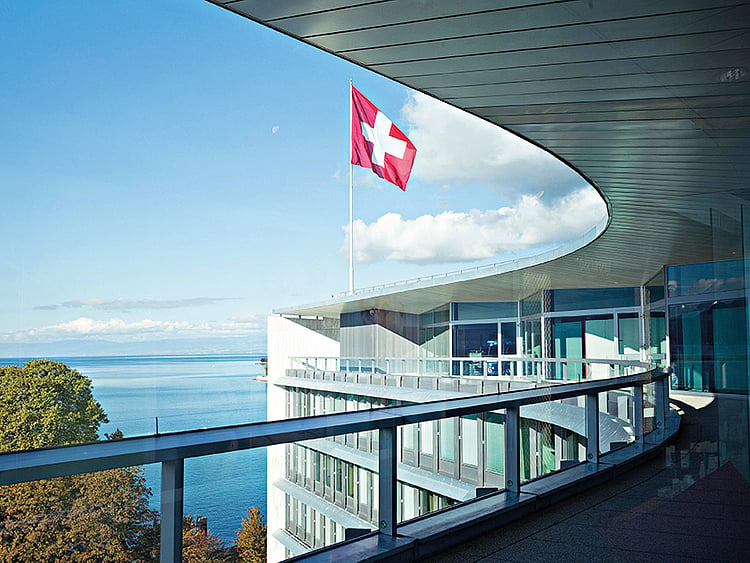Nestle CEO works the angles for fresh growth
Last year was about disposing brands that didn’t measure up, now its acquisition time

It isn’t just Unilever NV that’s struggling to sell more food. Rival Nestle SA now expects to come up short of its self-imposed sales growth target this year, and it’s counting on acquisitions to put it back on track.
While CEO Mark Schneider met the lower end of a goal for underlying operating margin 12 months early, it will take at least another year for the owner of the Nesquik and Nespresso brands to reach and sustain its annual sales growth objective of 4-6 per cent, partly due to the effect of disposals.
It’s a rare misstep for Nestle’s first external CEO for almost 100 years. Even with the 2 per cent drop last Thursday, the shares are up more than 40 per cent since his arrival in January 2017, outpacing Unilever.
While Schneider’s made a good start selling off underperformers and making purchases in faster growing areas, such as coffee, pet food and meat substitutes, more reshaping is needed. He has traded — either acquired or moved out of — businesses that accounted for about 12 per cent of total sales in 2017.
That’s ahead of his target for changing up 10 per cent by the end of 2020. He’s not done yet. From here the focus will be more on acquisitions than disposals.
Still room for cuts
While expanding in the right growth markets is key, Schneider should also go further in pruning the Swiss food giant. Possible culprits for offloading could be parts of the US frozen foods business, especially pizzas, or some water assets, such as those mainstream brands that can’t be taken upmarket.
The fact that Nestle wrote down the value of its Yinlu business in China could be a prelude to an exit from difficult divisions, for example making peanut milk. However, selling off these businesses may be trickier than previous disposals in confectionery, skincare and ice-cream.
Watch the payouts
There’s also a risk that Schneider, in an effort to turbocharge growth, becomes less disciplined when he buys. He indicated that he’s open to a wide array of options, the most promising being small or mid-sized purchases, particularly in the hot market for nutrition and metabolism.
He lamented that last year was heavy on disposals, but light on purchases. That should change this year, but he shouldn’t be too eager and so strike rash deals.
Sticking to his strengths
Schneider is comfortable in the pharmaceutical space, having led German health care company Fresenius SE before joining Nestle. Medical nutrition not only has higher growth prospects and margins than many food areas, but it is also less constrained by competition rules because Nestle doesn’t have such a big position.
He most recently bolstered Nestle’s medical nutrition arm by acquiring gastrointestinal medication Zenpep and increased the investment in Aimmune Therapeutics Inc., which has developed a product to counter the effects of peanut allergies. It indicates that this area, particularly treatments related to the body’s metabolism, is likely to be a bigger focus.
A treasure trove
To fund any large-scale ambitions, Schneider has Nestle’s stake in L’Oreal SA, worth about 35 billion euros ($38 billion), to play with. The company has always said that it won’t part with this holding unless it has a strategic use for the proceeds, but he seemed to be more open to an exit.
Small- to medium-sized deals wouldn’t require any change. A bigger transaction — which can’t be ruled out — might.
Either way, Schneider can’t afford to take the wrong turn. Not only is activist Dan Loeb still on the register, but Nestle’s valuation has increased significantly under his tenure. The shares trade on about 22 times forward earnings, compared with about 20 times for Unilever.
The premium is justified by Unilever’s recent sales stumble, as well as its slower pace of portfolio change and less focused approach to acquisitions. That doesn’t mean Nestle won’t be punished if it disappoints in the same way as its rival.
Sign up for the Daily Briefing
Get the latest news and updates straight to your inbox
Network Links
GN StoreDownload our app
© Al Nisr Publishing LLC 2026. All rights reserved.